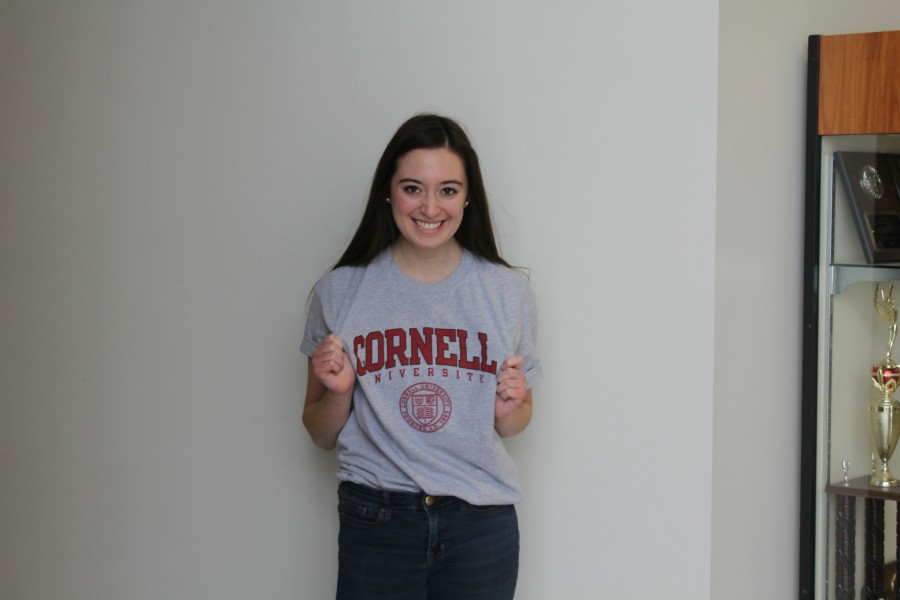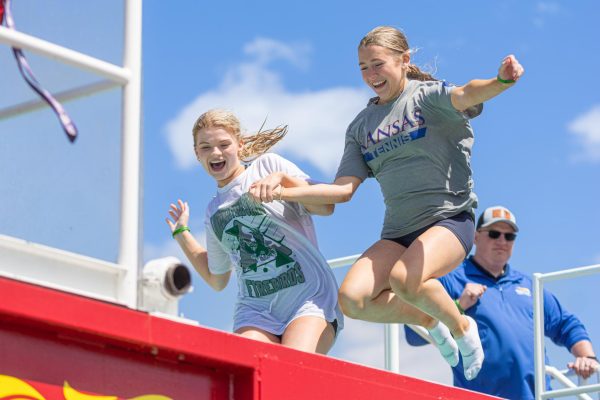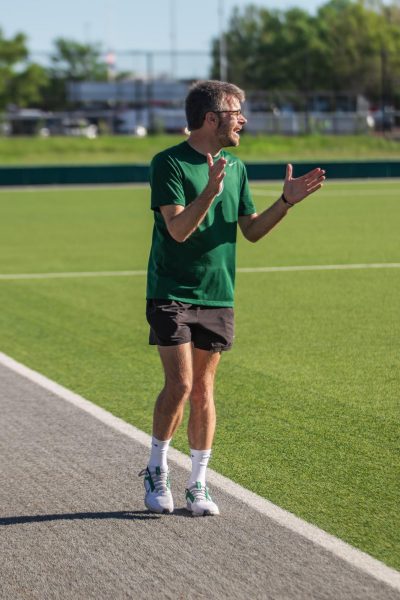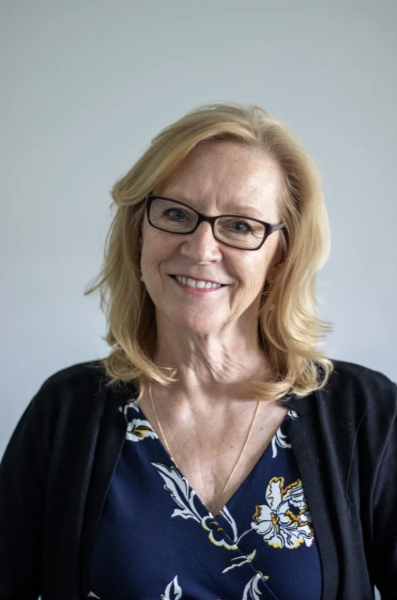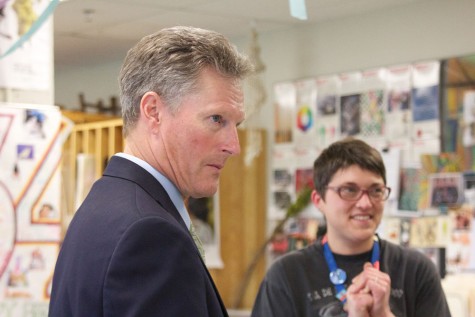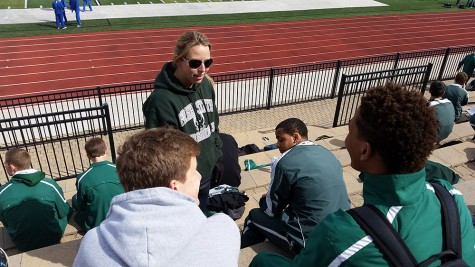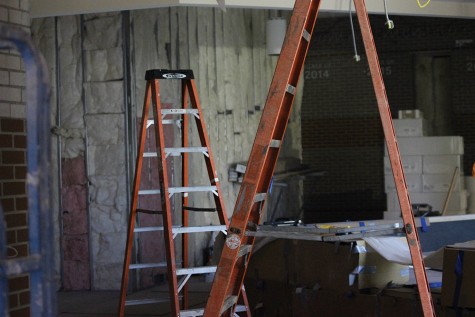Seniors share plans for post-secondary pursuits
senior Sarah Lieberman
With two tanks of fish, a crested gecko and a baby ball python to care for, senior Michael Quackenbush appreciates not only the University of Kansas’s top-ranked engineering program, but also its close proximity.
“I’m close to my family and I have a lot of pets, and KU won’t let me take my large amount of animals into the dorms, so I can still go back and visit and take care of them,” Quackenbush said. “Also, in-state tuition is pretty awesome.”
As seniors begin charting the future’s uncertain waters, they base their post-graduation plans on a wide range of criteria—from pets and finances to legacy and responsibility.
According to school counselor Joel Frederick, about 80 percent of Free State graduates continue to college after high school, with 65 percent headed to four-year and 15 percent to two-year.
If college isn’t in the plans, Frederick and the other counselors encourage students to pursue specific training for a career.
“Sometimes students go to get trained in something specific, like maybe they go to cosmetology school or learn to become a nurse’s aide or something,” Frederick said. “We encourage students to do something specific rather than just start looking for a job. But there are a few people who decide to do that, too.”
For Quackenbush, the decision wasn’t difficult. While he looked at other schools with Architectural Engineering majors, KU’s in-state tuition, coupled with its location, won him over.
Others decide their post-high school plans based on a variety of other factors that range from the campus to the Greek life to the scholarships offered.
Ivy Leaguer
If senior Sarah Lieberman hadn’t received an Early Decision acceptance letter from Cornell University in mid-December, she would have applied to 17 other schools, most applications for which were due Jan. 1.
“It’s really good that I got in when I did because I was putting off applying to all my other schools…,” Lieberman said. “So if I hadn’t gotten in, I would’ve been in huge trouble.”
Lieberman started her college list during her freshman year, and even after numerous college visits, her search simply got broader, her list longer.
That is, until she visited Cornell.
“When I went to Cornell, it felt like a place I could live, the people I talked to seemed kind of similar to me and it had everything I was looking for in a school,” Lieberman said.
Since Lieberman is still contemplating future career options, she appreciates Cornell’s broad liberal arts education as a chance to explore several areas of study before narrowing her focus. Her current interest is government related, so the school’s opportunity for those pursuing government majors to spend their junior year interning in Washington, D.C., while still taking Cornell courses, appeals to her as well.
“When I heard about that (D.C.) program, it seemed like a very practical choice, but also something I would love,” Lieberman said.
Both Lieberman’s father and grandfather went to Harvard and her mother attended Yale, but Lieberman did not rely on her Ivy League background. She spent countless hours preparing for the SAT, studying for AP exams and working on her college essays, as well as throwing herself into academic and community-oriented extracurriculars.
“I always feel like I could be doing more, which is a good problem to have, but also maybe a bad thing,” Lieberman said. “Like, I don’t like turning down opportunities, and I like to take on as much as I possibly can.”
Lieberman’s hard work didn’t go unnoticed in the gifted program, where she spends an hour each day. Janice Fullerton, gifted resource curriculum teacher, always believed Lieberman would get into the school of her dreams.
“She’s very driven and knew what she was looking for,” Fullerton said. “There wasn’t any doubt in my mind an Ivy League school would take her.”
Community College
Since joining the debate squad his freshman year, senior Parker Hopkins’ year-round dedication to the activity, from summer debate camps to work nights after school, captured Johnson County Community College’s attention.
Dan Scout, assistant debate coach at JCCC, served as Hopkins’ dorm supervisor at the Jayhawk Debate Camp this summer and approached him about joining the college’s squad.
“He talked to me, had me fill out the recruitment form and I contacted them later, around October,” Hopkins said.
After touring the campus, Hopkins received an offer from JCCC of $1,500 to bring his debate skills to the college.
“I didn’t say yes immediately, but I already assumed I was going to go, then they raised the offer,” Hopkins said.
JCCC contacted Hopkins again and upped their offer to $2,000, covering full tuition and books.
“That pays for everything, so there’s no reason not to go at that point,” Hopkins said.
Hopkins knew his goal was to debate in college, and he kept his options in-state, with applications to KU and JCCC.
“I’m going to school to debate, that’s the reason,” Hopkins said. “I wanted to keep doing what I like. But I will go on to KU after JCCC, since an Education major is four years.”
Hopkins, who has posted a 59 percent debate round win average (94-66) in his four years at Free State, anticipates active participation on the JCCC squad, which usually has between 10-15 active members.
“At JCCC, they will fly me around the country to debate, unlike at KU,” Hopkins said. “At Johnson County, I become a top team person.”
Debate coach Jason Moore anticipates the same.
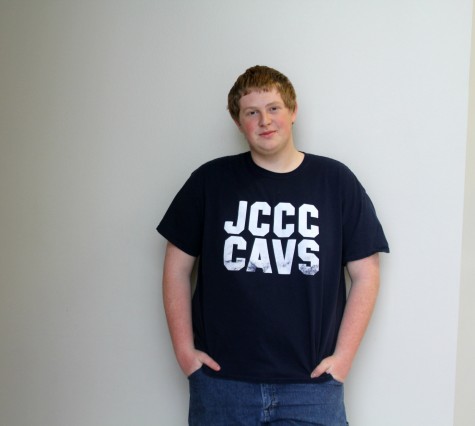
senior Parker Hopkins
“There is a correlation between how often he is here helping and working on debate and how well he has done,” Moore said. “If Parker approaches college debate the same way he approached high school debate, he may have some bumps at first, but he will eventually be successful at that level.”
Frederick noted students gravitate toward community college not only because of the smaller class sizes, but also because of the lower cost.
“Community college is about a third as much [money] as the state schools, so like a three-hour class at Johnson County Community College is about $300, while it’s over $900 at KU, so that’s a huge draw,” Frederick said.
While Hopkins plans to go to college to pursue his passion, others look for alternative options to follow their dreams.
Marine Corps
To qualify for the Marine Corps, you must be able to do more than 44 crunches in two minutes. Senior Jake DeLaTorre can do 107. You have to run a mile-and-a-half in 13 ½ minutes. DeLaTorre covers that distance in 9 minutes 38 seconds. You have to do two pull-ups. He can do 13.
“My grandfather was a Marine, so I was always fascinated by his stories growing up,” DeLaTorre said. “I kind of just wanted to live those stories myself.”
With his grandfather’s anecdotes and his father’s encouragement, DeLaTorre was about 12 when he decided he wanted to go into the military. At first, he considered the Coast Guard, but decided the Marines would be a better fit.
“If I was going to join any military branch, I wanted it to be the most awesome military branch there is, and I thought the Marine Corps would provide that, so I chose the Marine Corps,” DeLaTorre said.
DeLaTorre ships out to bootcamp in San Diego on June 22, and he won’t have a break until September, when he has a 10-day vacation before returning to camp for School of Infantry training.
With the next chapter of his life beginning to take shape, DeLaTorre has days where he’s more than ready to graduate. However,while preparing for the Marines, which he describes as 90 percent mental and 10 percent physical, DeLaTorre believes he can complete high school successfully.
“There are times when I don’t want to do my homework, but … in order to go to the Marine Corps, you have to have a high school diploma, so I can’t give up now,” he said.
While this sentiment may be typical for students not immediately college bound, counselor Ken Hile, a veteran, found his four years in the Air Force a catalyst for his future success in college.
“When I finished my four years in the military, I was ready to go to college, and I was a serious student then because I knew what I wanted,” Hile said.
DeLaTorre’s road may be less traveled, but he is not the only student choosing to bypass college to follow their passion instead.
Dance
In mid-December, senior Erin Fisher walked into the administration office and received her diploma. There was no speech or cap and gown.
While working full-time at the Big Biscuit and dancing at the Lawrence Ballet Theatre four hours a night, six nights a week, Fisher sidestepped a graduation ceremony to focus a bigger event: moving to New York to pursue her love of dance and theater.
“I’m definitely taking an unconventional path, which I think is okay,” Fisher said. “I think I would be really unhappy if I didn’t decide to right away go for the more unconventional thing.”
With family on the East Coast, Fisher plans to spend a year working and auditioning for dancing and performance jobs in New York. If she finds success, she’ll continue working professionally.
“After my year is up, we’ll see where I’m at, and if I’m doing really well, I’ll keep working professionally, and if not, I’ll work towards a college degree,” Fisher said.
Fisher has only been an active dancer for six years, although she’s participated in musical theater since she was six. In the ballet world, to be at a professional level with only six years of experience is uncommon.
“That’s something I’m really proud of,” Fisher said.
Having the support of her family keeps Fisher grounded.
“My mom totally supports me following my dreams, but this is such a tough industry—it’s so competitive and so up in the air,” Fisher said.
While exercising caution and preparing for the worst, Fisher encourages younger students to look beyond college when making post-high school plans.
“If you don’t know what you want to do, don’t feel like you have to go to college right away because college is something that will always be there,” Fisher said. “Go for whatever would make you happy, and don’t worry about what people have to say about, ‘You need to go to college.’”
While Fisher looks toward dancing professionally, other seniors plan to pursue their passions within collegiate teams and programs.
College Athletics
Just because she leaves high school for college does not mean that senior Alison Prather will give up her passion: dance.
“I’ve been dancing for 16 years, so I can’t really stop,” Prather said.
Prather will attend Baker University in Baldwin this fall, where she hopes to join the dance team, enter a sorority and study Biology. Her participation in the dance program will enable her to be involved while cheering for football and basketball and competing with the team.
“[Baker’s] dance team is pretty much what it is here at Free State,” Prather said.
The dance program at Baker is not the only reason Prather plans on attending. She would receive a $2,000 dance scholarship, but because her mother works at the college, Prather can go for free.
“I actually was going to go to K-State for the longest time to do pre-Med and then Veterinary Medicine because that’s what I thought I wanted to be—and I still might want to be that—but I’m not sure,” Prather said.
Free tuition permits her to change her major with fewer complications. Whatever she decides to do, Prather believes dance will continue to affect her after college, as it has through her entire life.
She has one piece of advice for underclassmen considering college.
“Just because you’ve thought about one thing since you were a freshman, you’re gonna feel totally different about it as a senior, so don’t be afraid to change your mind,” Prather said.
Moving Away
For senior Savannah Reeb, the University of Mississippi’s Division I sports, active Greek life and a small town environment were key factors in her college decision.
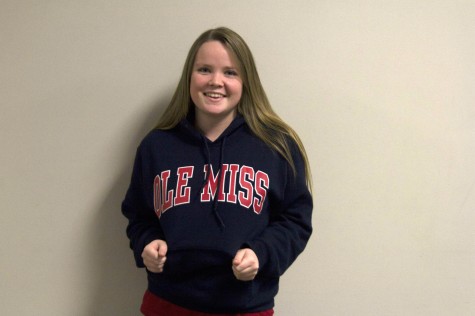
senior Savannah Reeb
With out-of-state tuition being considerably higher than in-state, scholarships and aid are often essential for students considering moving away from Kansas.
Frederick strongly encourages filling out the Free Application for Federal Student Aid to help colleges decide how much financial assistance they’ll provide.
“Eighty-five to 90 percent of scholarships that are given out come right through the colleges and colleges like to have that FAFSA for that,” Frederick said.
Hoping to pursue International Relations, Reeb noted Mississippi’s financial aid also played a role in her decision.
“For an out-of-state college, it’s pretty cheap,” Reeb said. “And academically, it’s not your Harvard or your Stanford, so I can get a lot of academic scholarships and actually have gotten some already.”
Having sent in her application for the business school, Reeb won’t find out about her acceptance until mid-April. Only about 60 incoming students are accepted to study International Relations each year. If she doesn’t make the cut this year, she still plans to attend as an undeclared business major, then reapply for her sophomore year.
Reeb’s official visit to the school impacted her view of the university and the way it treats its students.
“It seemed like they really cared about their students and their education, so after that there weren’t really any other options,” Reeb said. “I knew this would be the place for me.”
Undecided
Many students in the Class of 2015 have prepared their college plans and are now focused on spring break and senior pranks. Some, however, like senior Tim Schoeneberg, still need to decide what to do after graduation.
“Well, I’m not sure what I’m going to be doing,” Schoeneberg said. “I know I’m going to go into music.”
For most of his high school years, Schoeneberg wanted to take a gap year before enrolling in college.
“I don’t have a job and taking a year off would give me more time to work and earn more pay,” Schoeneberg said.
Taking a gap year is a less traditional approach for recent graduates. Frederick used to be opposed to the idea but has recently changed his mind and believes it may be a good option for some students.
“Sometimes, if you take a year out, you can come back with a new sense of anticipation and wonder and enthusiasm about education,” Frederick said.
Schoeneberg has to decide between taking a gap year and going to college. His top schools, Southwest Baptist University in Bolivar, Mo. and Tabor College in Hillsboro, Kan., have both already accepted him.
With the May 1 decision deadline quickly approaching, Schoeneberg has little time to make one of the biggest decisions of his life.
“Tabor has got a great choir program, but SBU is closer to family,” Schoeneberg said.
Conclusion
While many graduates will find themselves at a four-year college next fall, Frederick anticipates a shift toward community college, as Kansas continues to cut funding to higher education.
“It’s unique, each person finds their own path,” Frederick said. “I would have to say that as expensive as college is getting, you’ll continue getting growth at the JuCos (junior colleges) because they’re so much more affordable. As the state continues to cut off money to support higher education, it’s going to get harder and harder for people to pay for college, sadly.”


